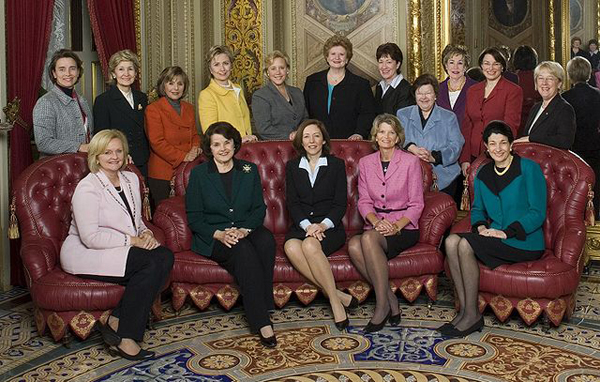- La Feria Community Holds Succesful Business Mixer Event
- Little Nashville to Take Place in Downtown Mercedes
- Lions Basketball Captures District Gold
- La Feria ISD Students Compete in Regional Chess Tournament
- Lions End First Half of 32-4A on a High Note
- La Feria ISD Held Another Successful Parent Conference
- Strong Appearance for Lions at Hidalgo Power Meet
- LFECHS Students Get to Meet Local Actress
- Students Participate in Marine Biology Camp
- Two LFECHS Students Qualify for All-State Band
Texas Falls Short on Status of Women
- Updated: June 8, 2015
by Eric Galatas/TNS
AUSTIN, Texas – Texas got its report card on women’s status in key areas compared with men, and the grades aren’t good.
Two new reports, the last of a seven-part series published by the Institute for Women’s Policy Research, showed that Texas and the nation fall short on work and family policies for women, and Texas got an F on voter registration, turnout and representation in elected office.
Christopher King, senior researcher at the University of Texas’ Ray Marshall Center, said it’s the grade the state deserves.
“In terms of getting a failing grade in terms of political participation, we’ve done pretty much everything you can think of to discourage people from turning out at the polls,” he said. “State policy is basically squarely against political participation.”

Two new reports measuring how women fare across the nation show that Texas fails women in work and family policies and women’s political leadership. Photo: CrazyLegsKC/Wikimedia Commons.
The reports found that nationally, women of color make up roughly 18 percent of the voting-age population but hold only 6 percent of seats in Congress, 5 percent in state legislatures and less than 3 percent of state elected offices.
Texas got a D grade for the level of poverty and opportunity for women, a D-plus in work and family and only average grades in women’s health and employment. King said paid leave and child care are consistently listed as top issues for female voters, adding that since women vote at higher rates than men, candidates should pay attention.
“When kids are enrolled in high-quality early education and care,” he said, “the moms are more apt to sign up for programs to further their own education and skills and to work in better jobs.”
King added that families with children living below the poverty line spent 30 percent of their income on child care in 2011, more than three times the proportion spent by families living above the poverty line. The reports also found that women are nine times more likely than men to work part-time for family care reasons, and mothers still do the majority of unpaid family work.
The reports are online at statusofwomendata.org.


